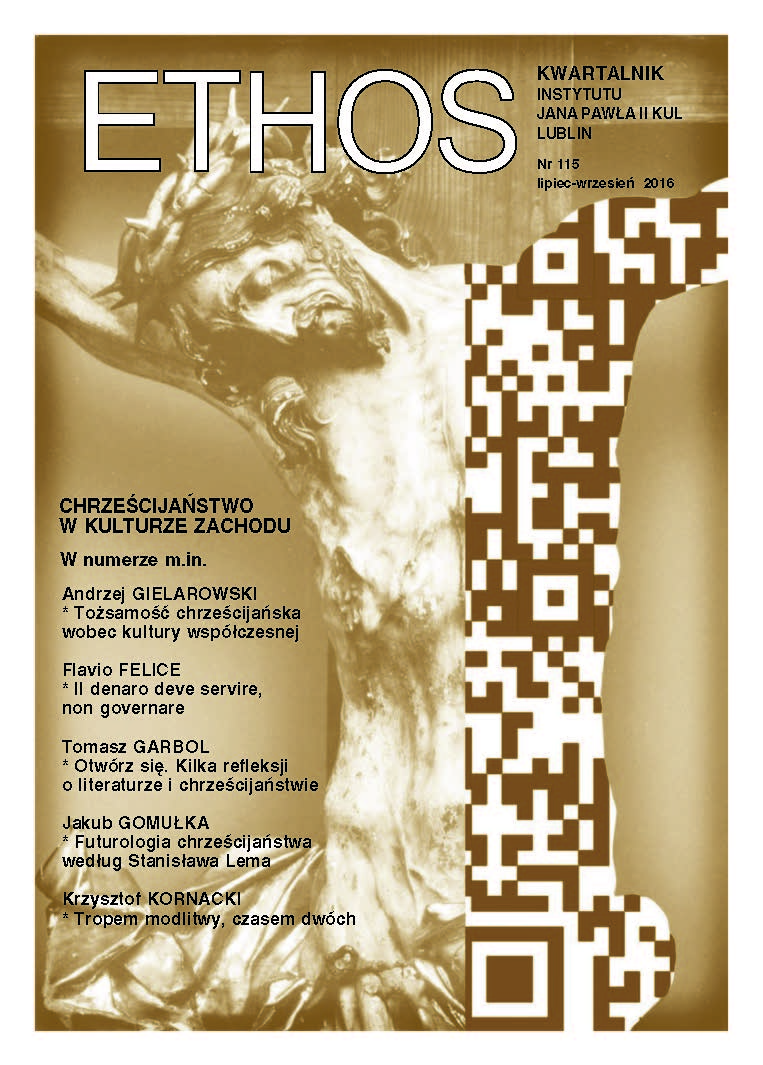Dlaczego warto dziś czytać Stycznia? Aktualność problemu autonomii etyki
Why Is It Worth Reading Styczeń Today? On the Relevance
of the Problem of the Autonomy of Ethics
Author(s): Alfred Marek WierzbickiSubject(s): Christian Theology and Religion, Philosophy, Ethics / Practical Philosophy, Theology and Religion
Published by: Katolicki Uniwersytet Lubelski Jana Pawła II - Instytut Jana Pawła II, Wydział Filozofii
Keywords: moral object; moral subject; moral experience; axiological empirical data; certainty of the heart; moral duty; rightness of action; personalism; moral good and extramoral goods; collision of goods
Summary/Abstract: An insight into today’s relevance of Tadeusz Styczeń’s conception of the autonomy of ethics involves a theoretical analysis as well as a consideration of the practical signifi cance of the standpoint he proposed. Styczeń develops the theoretical ideas advanced by Tadeusz Czeżowski and Tadeusz Kotarbiński, who considered the moral (axiological) experience as the autonomous basis of ethical knowledge. In his writings, however, Styczeń consistently uncovers the personalist content of the moral experience, thus showing that personalism is a special variety of value ethics. Moreover, he specifi es the area of the autonomy of ethics: ethics is an autonomous discipline already in its starting point, which is the moral experience, yet ethics draws on other disciplines, in particular on anthropology, at the stage of building its argumentation to justify the moral rightness of an action. Styczeń also shows the relations between ethics constructed ‘in the fi eld of experience’ and the moral theology based on the Christian Revelation. The autonomy of ethics—within the framework Styczeń worked out—lies in the autonomy of the moral experience and its content. Styczeń simultaneously questions the post-Kantian approach to the issue of the autonomy of ethics, rejecting its claim that the moral subject is actually the creator of moral norms. The author of the article also refers to the controversies over the axiological foundations of democracy and offers some remarks on the practical signifi cance of Styczeń’s conception of autonomous ethics. He draws a comparison between Styczeń’s standpoint and the conception of ‘minimal morality’ introduced by Michael Waltzer. The author also points that the ‘deformations’ of morality observable in various religious traditions (such as Hinduism, Christianity, and Islam) call for an autonomous moral discourse provided by ethics.
Journal: Ethos. Kwartalnik Instytutu Jana Pawła II KUL
- Issue Year: 29/2016
- Issue No: 3
- Page Range: 268-279
- Page Count: 12
- Language: Polish
- Content File-PDF

